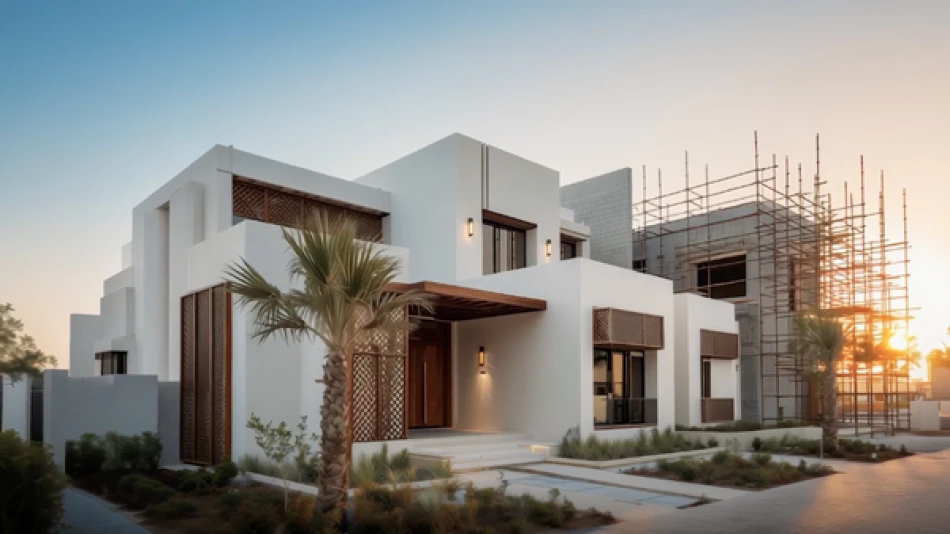
Special Housing Assistance Program Launched by Family Development and Municipalities Departments
Abu Dhabi Launches Revolutionary Housing Initiative to Keep Elderly Citizens with Their Families
Abu Dhabi has unveiled a groundbreaking housing service that allows adult children to legally modify their homes to accommodate elderly parents, marking a significant shift toward family-centered eldercare in the Gulf. The initiative, part of the broader "Barkatna" program launched by UAE President Sheikh Mohamed bin Zayed Al Nahyan, addresses the growing challenge of caring for an aging population while preserving traditional family bonds.
Breaking Down Institutional Barriers to Family Care
The Family Development Foundation, in partnership with Abu Dhabi's Department of Community Development and Department of Municipalities and Transport, announced detailed regulations for approving specialized residential units within family homes. This represents a departure from the typical Gulf model of separate housing compounds, instead embracing multigenerational living arrangements that have become increasingly popular in aging societies worldwide.
Mariam Mohammed Al Roumi, Director General of the Family Development Foundation, emphasized that caring for elderly citizens constitutes a "strategic priority" for the emirate. The service enables primary caregivers to obtain official permits for residential modifications, ensuring compliance with safety and accessibility standards while keeping families together.
Strict Eligibility Criteria Signal Serious Commitment
The program targets a specific demographic with clear requirements: elderly parents must be over 60 years old according to the UAE's National Policy for Senior Citizens, and all parties must be UAE nationals holding Abu Dhabi family records with permanent residency status. Crucially, applicants must be direct descendants (sons or daughters) who serve as primary caregivers and live permanently with their elderly parents.
These stringent criteria suggest Abu Dhabi is taking a measured approach, likely testing the program's effectiveness before potential expansion. The focus on permanent residency and direct family relationships indicates concern about program integrity and genuine care provision.
Regional Pioneer in Eldercare Innovation
This initiative positions Abu Dhabi ahead of regional competitors in addressing demographic transitions. While Singapore has long promoted multigenerational housing through financial incentives, and several European countries offer home modification grants, Gulf states have traditionally relied on domestic worker systems and extended family networks without formal government support.
Dr. Salem Al Kaabi, Director General of Operations at the Department of Municipalities and Transport, highlighted the technical and regulatory streamlining involved in approving these units. The emphasis on safety standards, appropriate space allocation, and accessibility features suggests Abu Dhabi is learning from international best practices in aging-in-place design.
Economic and Social Implications
From an economic perspective, this program could significantly reduce long-term healthcare costs by keeping elderly citizens in family settings rather than institutional care. The construction and modification requirements will likely create new business opportunities for contractors specializing in accessible home design, potentially spurring innovation in the local construction sector.
The initiative also reflects broader demographic realities facing the UAE. As the first generation of post-oil prosperity ages, traditional extended family structures face pressure from urbanization and smaller family sizes. By formalizing and supporting family-based eldercare, Abu Dhabi is proactively addressing potential social fragmentation.
Testing Ground for Gulf-Wide Adoption
Abu Dhabi's systematic approach—complete with formal partnerships between multiple government departments—suggests this could serve as a model for other emirates and Gulf states. The program's success metrics will likely influence similar initiatives across the region, particularly as neighboring countries grapple with their own aging populations and evolving family structures.
The integration of safety standards and accessibility requirements also positions this program as more than just housing policy—it represents a comprehensive approach to aging that could inform healthcare, urban planning, and social policy across the Emirates for decades to come.
Most Viewed News

 Layla Al Mansoori
Layla Al Mansoori






